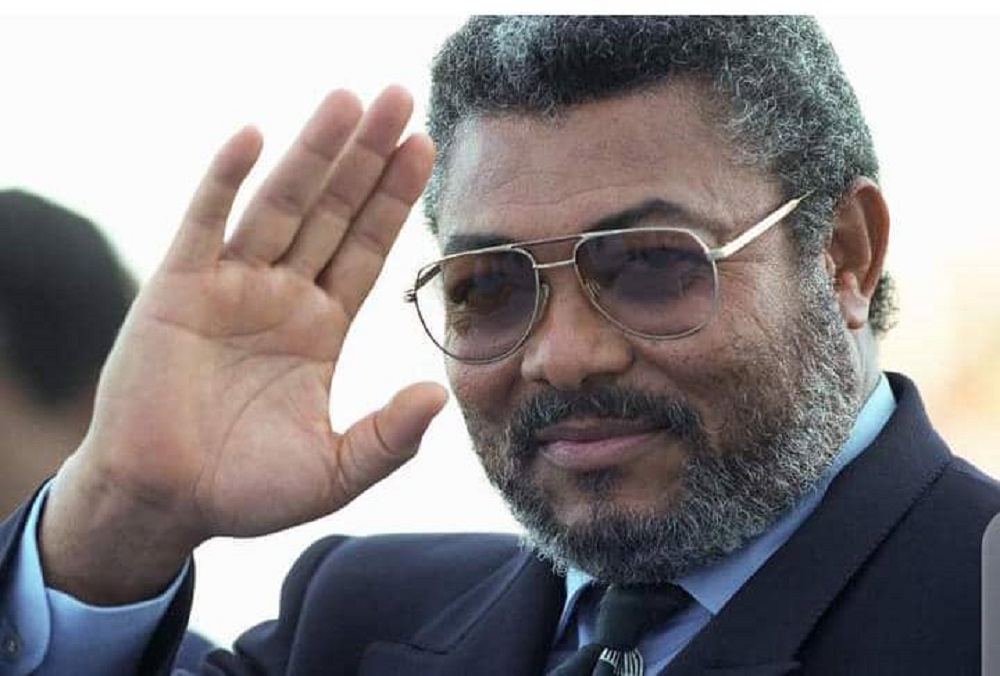Buhari mourns Ex-Ghana president Jerry Rawlings
Rawlings led a government overthrow and won two elections

President Muhammadu Buhari has described the death of former President of Ghana, Jerry Rawlings, as a great loss to Africa.
Buhari, in a condolence message to government and people of Ghana over the demise of Rawlings who died at the age of 73, said the entire African continent will surely miss the sterling qualities of the great leader.
The President, in a statement on Thursday by his spokesman, Femi Adesina, said the passion, discipline and moral strength that the former Ghanaian leader employed to reposition his country over many years continue to reverberate across the continent and beyond.
Buhari noted what he called the “unique role” the former President played in strengthening political institutions in his country and Africa, stimulating the economy for sustainable growth, and vociferously championing the African cause by urging many leaders to work towards interdependency on the global stage, especially in areas of competitive advantage.
He joined family, friends and associates of the former Ghanaian leader in mourning his departure, and assured that the ideas that Rawlings postulated, particularly for development in Africa, and his sacrifices in working in various countries as an envoy for peace and democracy will always be remembered.
The President prayed that the almighty God will grant the former Ghanaian leader eternal rest, and comfort all his loved ones.
The Former Ghanaian president died at the age of 73.
He died on Thursday, November 12 after a brief illness.
He had been hospitalised at the Korle Bu Teaching Hospital for about a week for an undisclosed illness, said the state-owned Daily Graphic.
He is a joint recipient of the 1993 World Hunger Prize.
He holds an Honorary Doctor of Law Degree from Medgar Evers College, City University of New York and Lincoln University Doctorate Degree for Diplomacy and Development.
A flight-lieuteant, he ceased to be a member of the Ghana Armed Forces in 1992.
He formed the National Democratic Congress, which contested and won presidential and parliamentary elections in 1992 and again in 1996.
His term of office ended in the year 2000.
Coup in the background
On May 28, 1979, Flt.-Lt. Rawlings, together with six others, appeared before a General Court Martial in Accra, charged with leading a mutiny of junior officers and men of the Ghana Armed Forces on 15th May, 1979.
There was strong public reaction, especially after his statement had been read in court, explaining the social injustices that had prompted him to act.
The ranks of the Armed Forces, in particular, expressed deep sympathy with his stated aims. When he was scheduled for another court appearance on 4th June, 1979, Flt.-Lt. Rawlings was sprung from custody.
With the support of both military and civilians, he led a revolt, which decisively ousted the Supreme Military Council from office and brought the Armed Forces Revolutionary Council (AFRC) into being.
The AFRC, under the chairmanship of Flt.Lt. Rawlings carried out a “house-cleaning exercise” aimed at purging the Armed Forces and society at large of corruption and graft as well as restoring a sense of moral responsibility and the principles of accountability and probity in public life.
Meanwhile, following the programme already set in motion before the 4th June Uprising for civilian administration, general elections were held.
On 24th September 1979, the AFRC handed over to the civilian Government of the People’s National Party (PNP) under President Hilla Limann.
On 31st December 1981, Flt. Lt. Rawlings led a section of the Armed Forces to overthrow the PNP administration.
A Provisional National Defence Council (PNDC), composed of both civilian and military members, was established, with Flt-Lt. J.J. Rawlings as the Chairman.
His interests include reading, building model aircraft, horse-riding and swimming. He is married to Nana Konadu Agyeman-Rawlings with whom he has four children – three girls and a boy.
